Pittsburgh Beef Cooking Temp Picture Beef Cooking Temp Black and Blue
Every editorial product is independently selected, though we may be compensated or receive an affiliate committee if you buy something through our links. Ratings and prices are authentic and items are in stock equally of time of publication.
Practice you find yourself guessing if your chicken is washed or that your steak is a perfect medium-rare? Check out (and print!) our guide to food-safe cooking temperatures for meat, fish and more than.
Cooking is a balancing human action. Y'all need to melt meat and other foods long enough to kill germs but not so long that they dry out and lose flavor. Finding that sugariness spot isn't always piece of cake. But take a tip from the professional cooks in our Test Kitchen: Use a food thermometer to mensurate the internal temperature—our Exam Kitchen staffers dear this digital thermometer from Thermoworks.
Learn how to apply a food thermometer, then compare the results with the safety temperatures listed on this page.
Test Kitchen-Recommended Temperatures
| Ground meat and meat mixtures | Temperature |
|---|---|
| Beef, pork, veal and lamb | 160°F (71.1°C) |
| Turkey, craven | 165°F (73.9°C) |
| Beef, veal and lamb – roasts, steaks and chops | Temperature |
| Medium-rare | 135°F (57.2°C) |
| Medium | 140°F (60°C) |
| Medium-well | 145°F (62.8°C) |
| Poultry | Temperature |
| Whole craven or turkey | 170-175°F (76.seven-79.4°C), as measured in deepest function of thigh** |
| Legs or thighs | 170-175°F (76.7-79.four°C), as measured in deepest part of thigh** |
| Breast | 165°F (73.nine°C) |
| Stuffing (cooked in bird) | 165°F (73.9°C) |
| Pork | Temperature |
| Chops, roasts | 145°F (62.8°C) |
| Ham | Temperature |
| Fresh (raw) | 145°F (62.8°C) |
| Precooked (to reheat) | 140°F (lx°C) |
| Egg dishes | Temperature |
| Egg-based entrees | 160°F (71.1°C) |
| Custard, sauces, water ice cream base | 160°F (71.1°C) |
| Seafood | Temperature |
| Fin fish | Flesh should be opaque and flake hands. |
| Lobster, crab | Flesh should be opaque and pearly. |
| Scallops | Flesh should be opaque, milky white and firm. |
| Shrimp | Safe to swallow when flesh turns pink. |
| Clams, oysters, mussels | Rubber to eat if shells have opened during cooking. Discard any unopened shells. |
| Miscellaneous | Temperature |
| Leftovers and casseroles | 165°F (73.nine°C) |
| Microwave dishes | 165°F (73.9°C) |
**Poultry is safety to eat at 165° (73.9°C), merely we prefer the gustation and texture when the legs and thighs are cooked to 170-175° (76.7-79.four°C).

Several meat temperatures are lower than we used to recommend, thanks to enquiry into "carryover cooking." Scientists telephone call it that because oestrus "carries over" from the hot surface of a piece of meat to the cooler interior afterwards the meat has been removed from its heat source. That's why many professional kitchens, ours included, use temperatures slightly lower than recommended by the United States Department of Agronomics (USDA). If that's your preference, too, nosotros suggest yous remove your meat from the oven or grill before it reaches your target temperature, then let it correspond several minutes so it tin cease cooking: 5 minutes for steaks and chops all the way up to 15-20 minutes for roasts.
Important: Reduced meat temperatures aren't for anybody. Pregnant women, infants, the very elderly and people with compromised immune systems should only eat meat that's been cooked to the higher temperatures recommended by the USDA. Only for healthy adults, many food scientists and chefs see piffling take chances in eating meat that'southward cooked to slightly lower temperatures.
Official USDA Guidelines
| Product | Minimum internal temperature and rest time |
|---|---|
| Beefiness, pork, veal and lamb Steaks, chops, roasts | 145°F (62.8°C) and let to rest for at to the lowest degree 3 minutes |
| Basis meats | 160°F (71.i°C) |
| Ham, fresh or smoked (uncooked) | 145°F (62.8°C) and allow to balance for at to the lowest degree iii minutes |
| Fully cooked ham (to reheat) | Reheat cooked hams packaged in USDA-inspected plants to 140°F (lx°C) and all others to 165°F (73.ix°C). |
| All poultry (whole bird; breasts, legs, thighs, and wings; ground poultry; stuffing) | 165°F (73.9°C) |
| Eggs | 160°F (71.1°C) |
| Fish and shellfish | 145°F (62.8°C) |
| Leftovers | 165°F (73.nine°C) |
| Casseroles | 165°F (73.9°C) |
| Ribs | 185°F-195°F (85°C-xc.5°C) |
With these guides, cooking upwards roasts, filets, whole birds and more should be a breeze!
Get started with these roasts!
Source: https://www.tasteofhome.com/article/food-safe-cooking-temperatures/
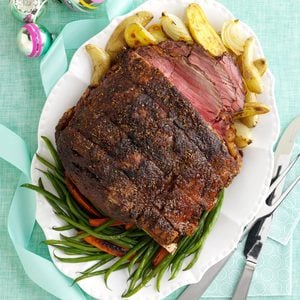
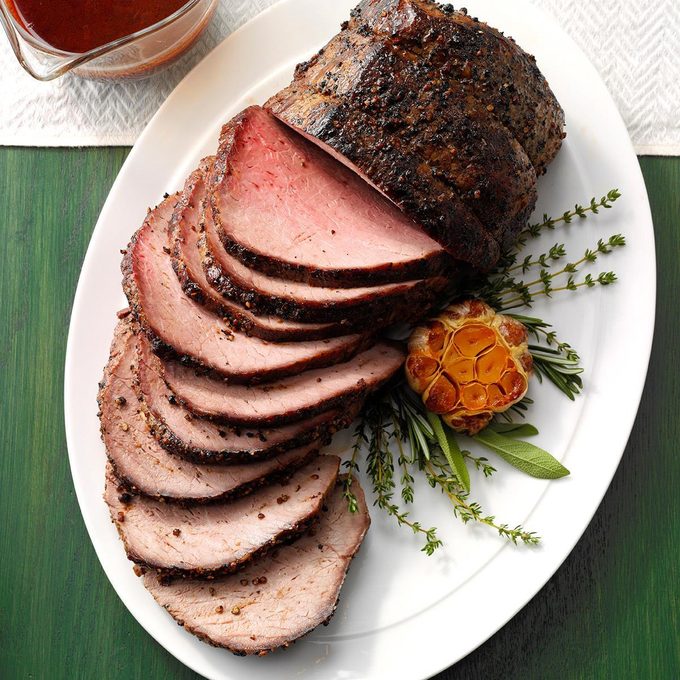

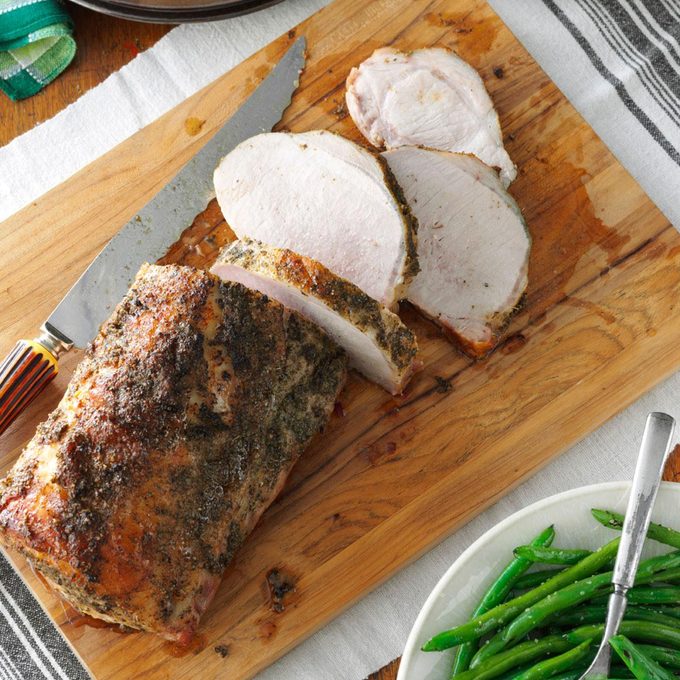
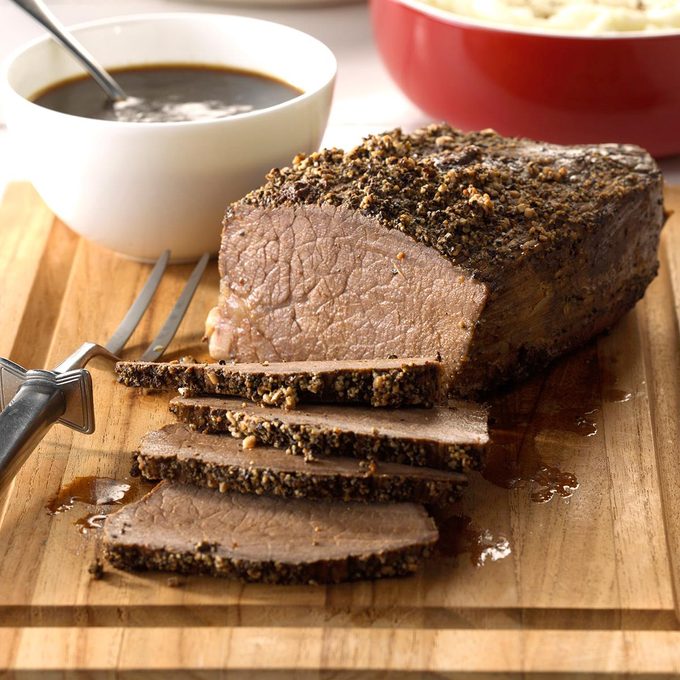
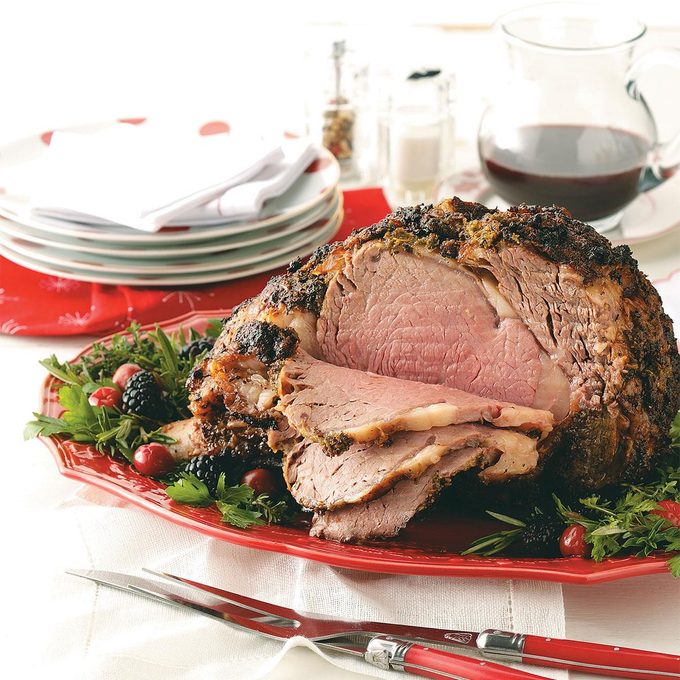
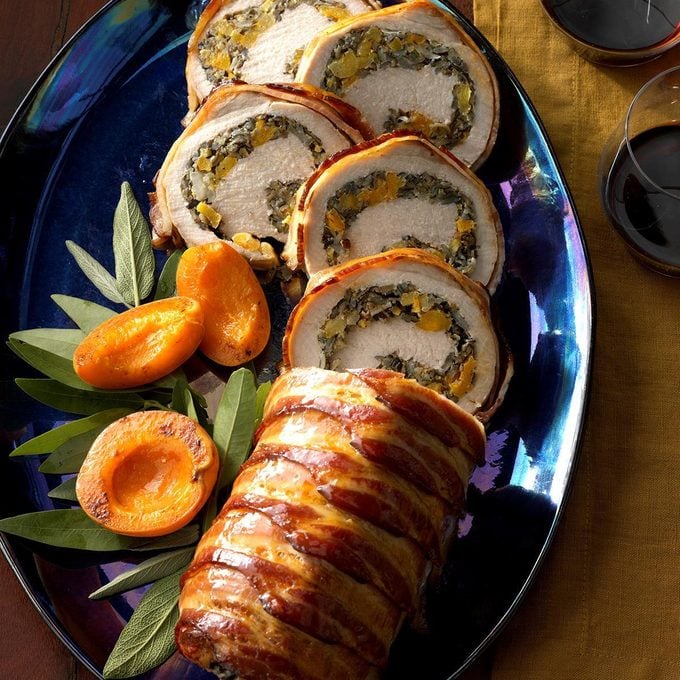
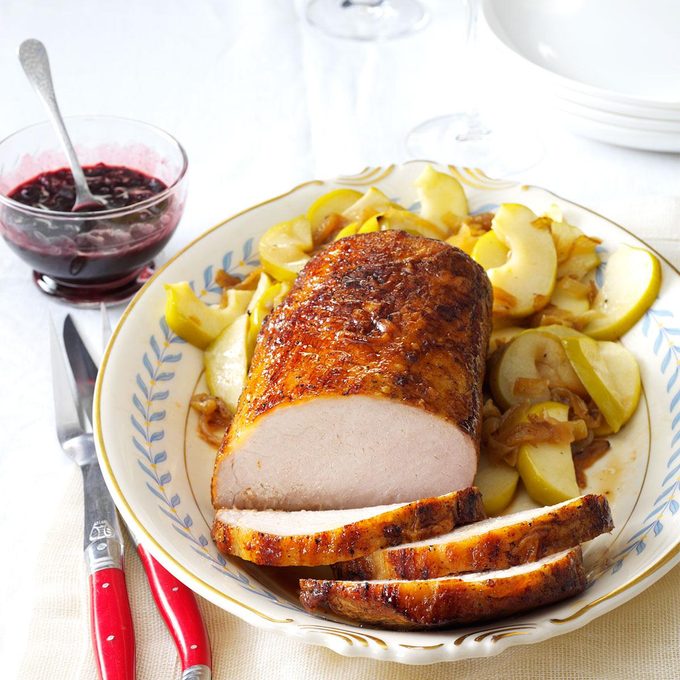
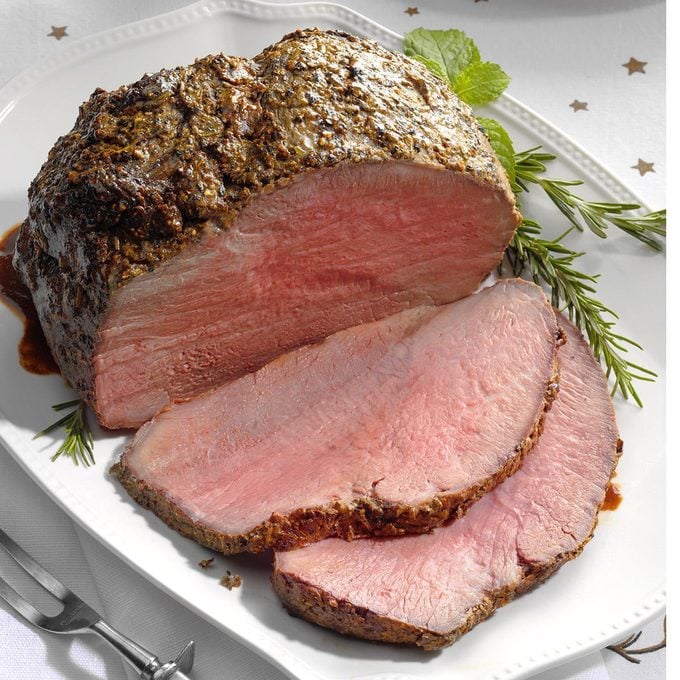
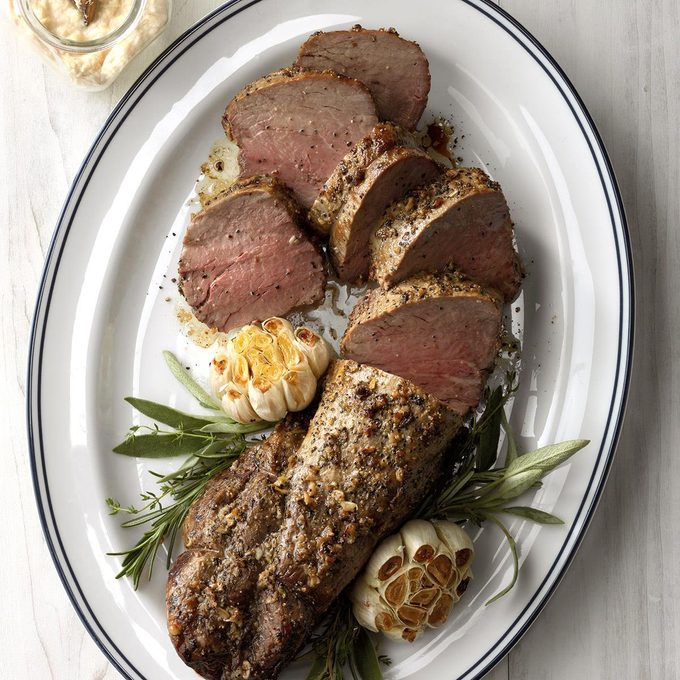
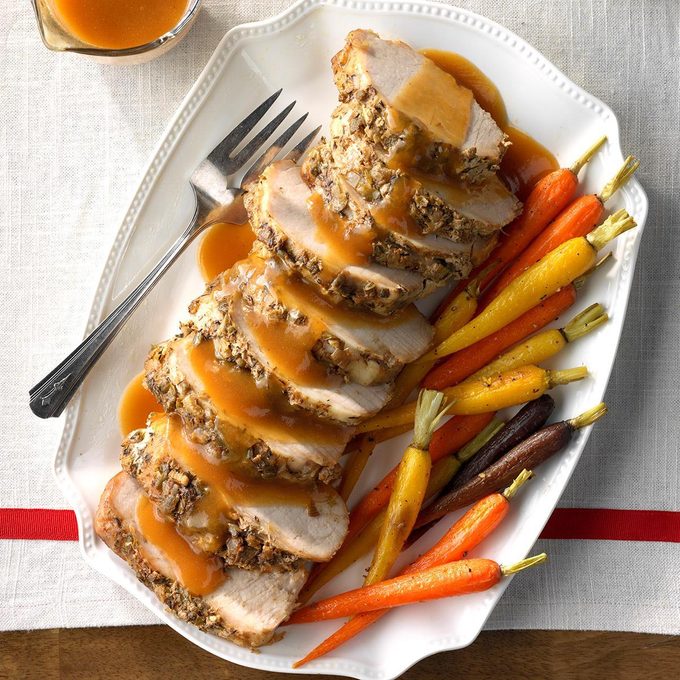
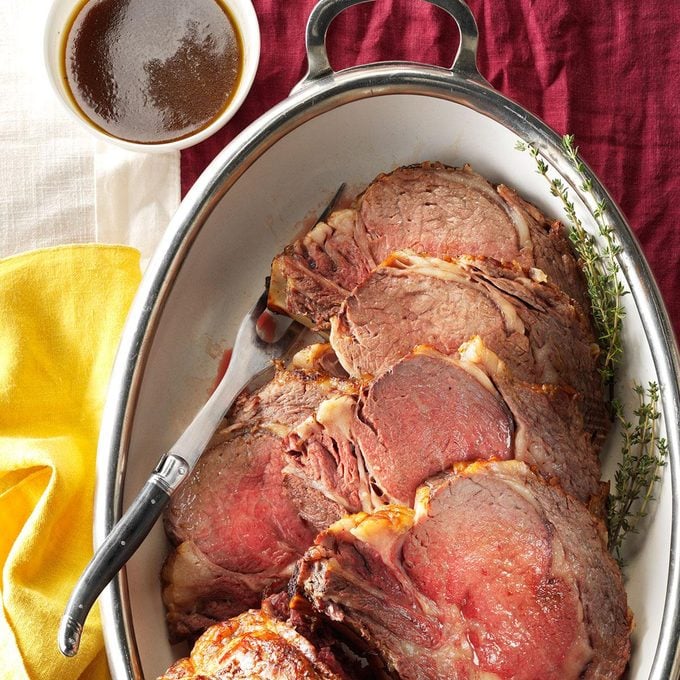


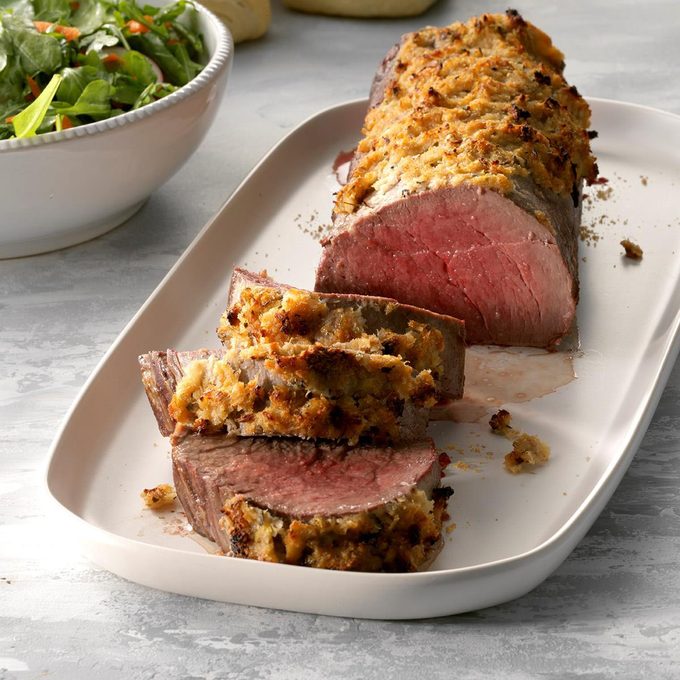
0 Response to "Pittsburgh Beef Cooking Temp Picture Beef Cooking Temp Black and Blue"
Post a Comment